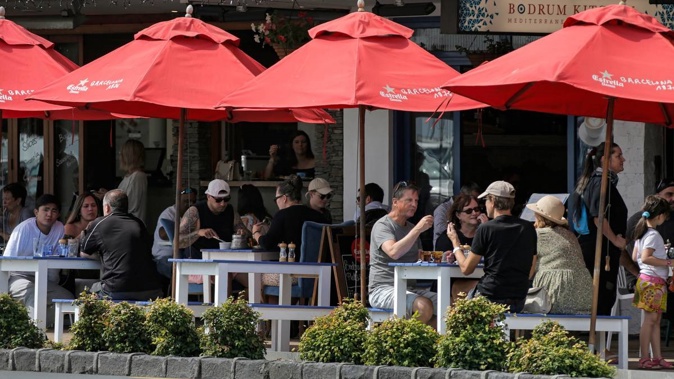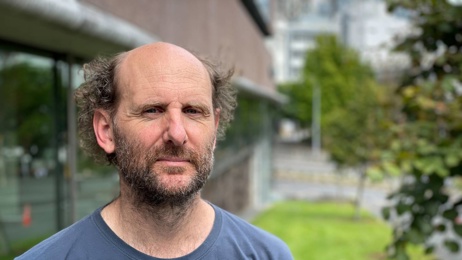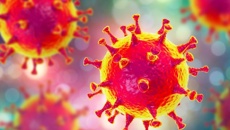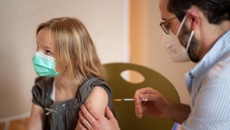
There are nine Covid-related deaths reported today and a total of 10,205 new community cases.
The deaths reported today takes the total number of publicly reported fatalities with Covid-19 to 405 since the pandemic began.
There are 734 people in hospital, including 25 in intensive care, the Ministry of Health said in today's 1pm update.
The average age of the 734 patients in hospital is 59.
Cabinet is meeting today to review the traffic light settings, with the pressure on the health system after the country's deadliest week one of the key factors in the decision.
Prime Minister Jacinda Ardern will announce the traffic light decision at her post-Cabinet press conference at 4pm, accompanied by director general of health Dr Ashley Bloomfield.
From 11.59pm tonight, there is no longer a requirement to use a vaccine pass - however businesses can still use the system if they wish to.
The nine deaths reported today include people who had died over the past three days.
Of the deaths reported today, one person was from the Auckland region, three were from Waikato, two were from Lakes, two were from the Wellington region and one person was from the Southern region.
One person was aged in their 50s, one in their 60s, one in their 70s, two in their 80s and four people were over-90.
The Ministry of Health attributed delays in reporting deaths to people dying with Covid-19, rather than from Covid-19, and Covid being discovered after they had died.
The deaths reported today take the total number of publicly reported deaths with Covid-19 to 405.
The seven-day rolling average of reported deaths is 20.
The location of today's community cases is: Northland (407), Auckland (1,835), Waikato (878), Bay of Plenty (571), Lakes (267), Hawke's Bay (454), MidCentral (531), Whanganui (249), Taranaki (357), Tairāwhiti (125), Wairarapa (92), Capital and Coast (745), Hutt Valley (390), Nelson Marlborough (398), Canterbury (1,664), South Canterbury (207), Southern (958) and the West Coast (76).
The location of one of today's cases is unknown.
There are 92,505 active community cases.
Today's seven-day rolling average is 13,218 while the seven-day rolling average of cases last Monday was 16,102.
Of the people in Northern region (Auckland and Northland) hospitals, and excluding emergency departments, 50 cases (14 per cent) are either unvaccinated or not eligible, nine cases (2 per cent) were partially immunised (less than seven days from second dose) or have only received one dose, 76 cases (21 per cent) were double vaccinated at least seven days before being reported as a case and 98 cases (27 per cent) had received booster at least seven days before being reported as a case.
The vaccination of status of 136 cases or 37 per cent is unknown.
The ministry said that as vaccine pass requirements eased it was important people continued to follow public health advice and stay home and away from school and work if they were feeling unwell.
"Another way to protect you and your whānau is to get vaccinated if you haven't already done so.
"Vaccination remains our best defence against Covid-19 and getting boosted is an important way people can protect themselves, their whanau and their friends from the virus."
To date, 96.3 per cent of people have had their first dose of Covid-19 vaccine, 95.1 per cent have had two doses and 72.7 per cent of those eligible have had boosters.
Yesterday there were 8810 new community cases of Covid-19 including 690 in hospital and 26 in ICU.
The number of people with Covid-19 in hospital was slightly higher than Saturday's 678 cases, but significantly down on the record 1016 patients almost two weeks ago.
Yesterday was also the first time New Zealand's daily case total dipped below 10,000 since February 24, when 6137 cases were reported.
There were also 18 deaths reported yesterday which includes people who have died over the past five days bringing the total number of Covid-linked deaths to 396.
While Covid deaths are rising, case numbers have been trending downwards and the pressure on the health system has been easing.
Auckland's Omicron outbreak is estimated to have peaked four weeks ago with Wellington also seeing a decline in case numbers, according to one expert.
However, other cases in other parts of the country including Canterbury are still rising or only just plateauing.
From tomorrow vaccine passes will be scrapped and vaccine mandates will be limited to the health and disability, aged care, Corrections and border workforce sectors.
Politicians will consider whether the country - or select regions - will move from the red traffic light setting to orange, a change that would mean there are no longer limits on how many people can gather indoors.
Under the red setting, indoor events are restricted to a 200-person limit, with everyone seated and separated, and wearing masks unless eating or drinking.
At orange, there are no limits on indoor gatherings, no requirements to be seated or separated, and masks are still required, but can be taken off to eat and drink.
Yesterday there were 8810 new community cases of Covid-19 including 690 in hospital and 26 in ICU.
The number of people with Covid-19 in hospital was slightly higher than Saturday's 678 cases, but significantly down on the record 1016 patients almost two weeks ago.
Yesterday was also the first time New Zealand's daily case total dipped below 10,000 since February 24, when 6137 cases were reported.
There were also 18 deaths reported yesterday which includes people who have died over the past five days bringing the total number of Covid-linked deaths to 396.
While Covid deaths are rising, case numbers have been trending downwards and the pressure on the health system has been easing.
Auckland's Omicron outbreak is estimated to have peaked four weeks ago with Wellington also seeing a decline in case numbers, according to one expert.
However, other cases in other parts of the country including Canterbury are still rising or only just plateauing.
From tomorrow vaccine passes will be scrapped and vaccine mandates will be limited to the health and disability, aged care, Corrections and border workforce sectors.
Politicians will consider whether the country - or select regions - will move from the red traffic light setting to orange, a change that would mean there are no longer limits on how many people can gather indoors.
Under the red setting, indoor events are restricted to a 200-person limit, with everyone seated and separated, and wearing masks unless eating or drinking.
At orange, there are no limits on indoor gatherings, no requirements to be seated or separated, and masks are still required, but can be taken off to eat and drink.
Ardern told AM this morning that Cabinet was taking a regular review of its settings and that it had not been triggered by anything in particular.
The key consideration around moving was less about the number of cases, but more about hospitalisations.
"The idea is to move at a point where we believe the hospitalisations have stabilised and if there was a small number that might be contributed it wouldn't have an impact on our hospital system."
She said it wasn't the right time to move to the orange setting in some parts of the country based on the health response, but the Government had the ability to take different approaches in different parts of the country for example in Auckland where cases were declining.
"We will be careful, we will be cautious."
Covid-19 Response Minister Chris Hipkins said last week that the rate of hospitalisations and ICU patients would be one of the things that Cabinet would weigh up when considering the country's traffic light settings today.
Those issues would lag behind the drop in case numbers from the peak.
Hipkins said there was nervousness in the community and the public sentiment was "finely balanced" about where we sit in the Covid response at the moment, but he said people mainly accepted that we were now living with Covid.
Covid-19 modeller Dion O'Neale from Te Pūnaha Matatini said mask wearing was really effective in preventing transmission and protecting both you and those around you and also gave extra protection to those at higher risk.
It was hard to quantify exactly what impact they provided because it depended on the quality and fitting of the mask, but overseas research showed a well-fitted mask was highly effective, he told RNZ.
O'Neale supported anything that meant that people were wearing high quality and well-fitted masks more of the time because they would be good for stopping the spread of Covid-19 and a "bunch of other airborne respiratory illnesses" once the border reopened.
Ventilation was also another good form of protection, he said.
National wants the traffic light settings abolished, but supported other protective measures such as mask wearing and restrictions on gathering limits remaining in place.
National Covid-19 Response spokesperson Chris Bishop told RNZ the traffic light settings were generally pretty confusing and had never really been followed.
Bishop said the traffic light system could still be kept in reserve just like the alert level system in case a new worrying variant emerged and it needed to be rolled out again.
Take your Radio, Podcasts and Music with you









